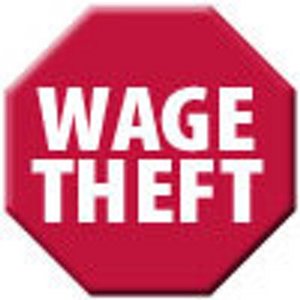An often difficult issue for employers is whether meal breaks for non-exempt employees under the Fair Labor Standards Act (“FLSA”) count as compensable hours worked. Generally, the FLSA regulations state meal breaks do not count as hours worked when an employee is “completely relieved from duty for the purposes of eating regular meals.” 29 C.F.R. § 785.19. Further, an employee must generally be given 30 minutes or more and must be completely relieved of his or her duties for a period to qualify as a bona fide unpaid meal break.
However, issues arise when an employer puts various restrictions on non-exempt employees during unpaid meal breaks. For example, if an employer prohibits an employee during an unpaid meal break from leaving the employer’s premises without prior authorization, or if an employee must remain on call during a meal break to perform work at any moment, an employer could find itself in violation of the regulations and be required to pay compensable hours worked.
Recently, the Third Circuit, which covers the jurisdictions of Delaware, New Jersey, Pennsylvania, and the Virgin Islands, clarified the test to be used to determine whether restrictions placed on employees during meal periods make the periods compensable hours worked, regardless of whether the employee actually performed any work during the meal period. In the case of Babcock v. Butler County, correction officers alleged the Prison’s policy for meal breaks constituted an FLSA violation and resulted in unpaid overtime compensation. The officers claimed certain restrictions were placed on them during meal breaks; for example, not being able to leave the prison without prior authorization, and being required to remain in uniform and be on call and in close proximity to emergency response equipment in the event of an emergency. The Prison filed a motion to dismiss alleging the meal periods were not hours worked because the “predominate benefit” of the meal period was received by the officers.
On appeal, the Third Circuit agreed with the Prison’s assertion and affirmed the dismissal. The “predominate benefit” test was adopted, which asks whether the employee is primarily engaged in work-related duties during the meal period. Therefore, the Third Circuit expressly rejected the more restrictive “relieved from all duties” test. In arriving at their conclusion, the Third Circuit acknowledged the “predominate benefits” test is a “fact-intensive inquiry” that assesses the “totality of the circumstances to determine, on a case-by-case basis, to whom the benefit of the meal period inures.” Based on the facts, the Court found despite the restrictions, the officers received the predominate benefit of the unpaid meal break. The Court also looked at the parties’ collective bargaining agreement, noting that the officers were required to be paid the entire meal break period if it was “interrupted” by work. Therefore, the Court found the agreement’s protections on overtime compensation supported the overall conclusion.
Employers and employees within the Third Circuit, as well as in other Circuits, should take note of the recent decision. Specifically, attention to following is required:
1. Restrictions on non-exempt employees during meal break periods do not necessarily make the meal break time compensable hours worked for FLSA purposes.
2. Under the “predominate benefit” test, the analysis is whether the restrictions are so significant and expansive that the employer predominately benefits from the meal time, not the employee.
3. Employers should treat meal breaks as compensable hours worked if the employee is interrupted by work duties at any point during the meal break.
4. If an employer wants meal breaks for non-exempt employees to remain unpaid, the employer should institute clear policies and procedures to educate employees to (1) not perform any work during a meal break unless expressly instructed by management, and (2) to report any interrupted meal breaks immediately so compensation may be received.
Due to the significant liability concerns that meal break issues present to employers, employers would be wise to ensure they have adequate and lawful meal break policies in place.
Source: Adam Long, When Must Meal Breaks Be Paid? Third Circuit Clarifies FLSA Test (December 2, 2015), See more at: http://www.jdsupra.com/legalnews/when-must-meal-breaks-be-paid-third-39704/.
(Advertising Material: This Notice is for informational purposes and should not be construed as legal advice).


